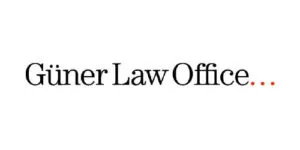On 4 June 2009 the Turkish Government announced a new incentive plan for investments in Turkey. This plan has been jointly prepared by the Turkish Treasury, Ministry of Finance and Ministry of Industry and Commerce. The Turkish Cabinet's decision regulating the general principles and procedures for the incentive plan was published on 16 July 2009.
We set out below a general summary of the incentives that will be applied. Please contact us if you need more details on the incentive plan.
1. What types of investment can benefit from the incentive plan?
The plan sets out certain incentives which apply to "large-scale" investments in certain sectors, and other incentives which apply on a regional/sector-specific basis.
(a) "Large-scale" investments
Investments as set out in the table below are "large-scale" investments under the incentive plan:

(b) Regional/sector-specific investments
The plan divides Turkey up into four geographical regions which will benefit from different sector-specific incentives:


2. What are the investment incentives?
The following investment incentives apply:
(a) Discounted corporation tax or personal income tax: The incentive plan sets out the following discounts on corporation tax (which is normally 20 per cent) or personal income tax for companies/people who hold an investment incentive certificate from the Treasury, based on the type of investment

However, if the investment is made before 31December 2010, the following corporation tax or personal income tax discount amounts will apply:

The discounts in corporation tax or personal income tax will apply only until the profits of the investor company/person reach a certain defined threshold (which is determined by calculating the amount equal to the "investment contribution percentage" of the total investment amount and then dividing this by the reduced corporation tax percentage to be applied).
(b) Treasury will pay social security contributions for employers:
The Turkish Treasury will pay the social security contributions that employers must make for their employees for the following time-periods based on the type of investment:

(c) Treasury loan interest support Research and development investments; environmental investments; and regional/sector-specific investments in Regions 3 and 4 can benefit from this support. If the Treasury gives such an investment an investment incentive certificate, the Treasury may then decide to pay some of the interest that accrues on 70 per cent of the value of the relevant investment. The interest support depends on the type of investment and type of loan, but the maximum amount of interest support cannot exceed TL300,000 for research and development investments and environmental investments; and TL500,000 for regional/sector-specific investments in Regions 3 and 4.
(d) Land provided by the Treasury for investment in certain areas
The Turkish Government has stated under the plan that it will "assign lands for their investments".
(e) Relocation tax support to textile companies
Companies which:
- work in the textile sectors (including textile "confection", "ready-to-wear", leather and leather goods);
- employ a minimum of 50 employees; and
- agree to resettle from Region 1 or 2 to Region 4 before 31 December 2010
will benefit from the following investment incentives:
- 75 per cent discounted corporation tax or personal income tax for five years;
- the Government may grant land for investment;
- the Turkish Treasury will pay the social security contributions that employers must make for their employees for five years; and
- the Turkish Treasury will pay the transport costs for companies moving to Region 4 if they move before the end of 2009.
3. Incentives which apply to all other types of investment (excluding the above)
The following incentives will continue to apply to all other types of investment in Turkey:
- customs tax exemptions (investors will be able to benefit from certain exemptions from tax on the import/export of goods); and
- VAT exceptions (investors will in certain circumstances be able to benefit from certain VAT exceptions).
Guner Law Office was established in 1996 and has since grown into one of the major corporate, M&A, banking, litigation, energy and TMT practices in Turkey. Guner Law Office is headed by Ece Guner and works with international law firm Denton Wilde Sapte.
The content of this article is intended to provide a general guide to the subject matter. Specialist advice should be sought about your specific circumstances.
